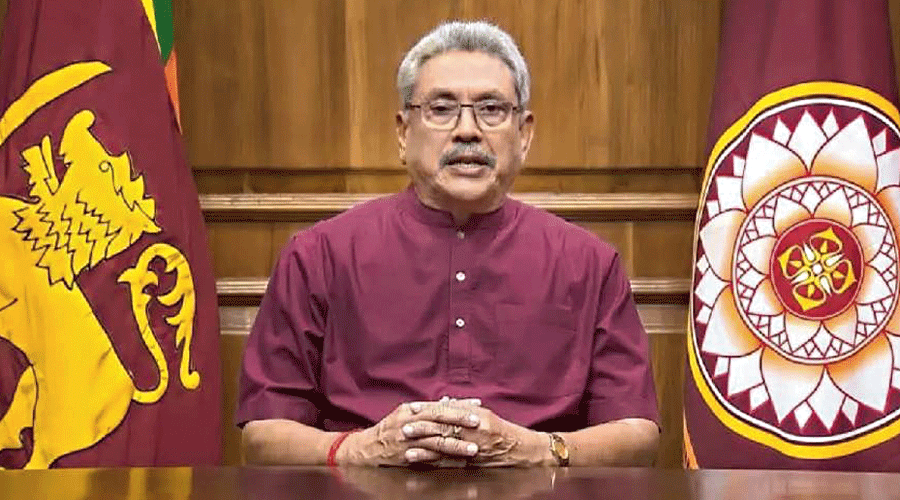President Gotabaya Rajapaksa’s ousting, after months of protest against him and the powerful ruling dynasty, does not necessarily open an easy path for Sri Lanka out of its economic and political crisis.
The transition to a new government now puts the spotlight on a parliament that has long frustrated the island nation of 22 million, with lawmakers and political parties engaging in protracted and messy fights over positions of power.
What complicates the process: The ruling party loyal to the Rajapaksas still maintain a majority of the seats. Sri Lanka’s Constitution is clear on succession. In the event of the President resigning, the Prime Minister takes on his duties in an interim capacity.
The proceedings then turn to the parliament, where lawmakers vote for a new President from their midst to complete the remaining two years of Rajapaksa’s term. As Rajapaksa’s departure from the country was confirmed, Mahinda Yapa Abeywardena, the Speaker of the parliament, said in a phone interview that he still had not received the President’s letter of resignation, which would make the end of his presidency official.
As protesters took over Colombo this week, even the basics of that transition have been uncertain because the Prime Minister, Ranil Wickremesinghe, also said he would resign after protesters stormed his offices and forced him into hiding. Wickremesinghe’s private residence was set ablaze in the middle of the night. Wickremesinghe was made acting President on Wednesday. Opposition lawmakers said the parliament would then convene on Friday, which will open the process for electing a new President which, technically, could be completed in a matter of a week. But the jostling for that position will be complicated, and potentially protracted. The party loyal to the Rajapaksas, known by its Sinhalese initials of SLPP, enjoys a majority.
It is unclear whether their choice for the presidency would be acceptable to the protesters or the Opposition. The two other candidates, in addition to whoever the SLPP puts forward, are expected to be the leader of the opposition, Sajith Premadasa, and the Prime Minister, Wickremesinghe. Sri Lankans often point to the history between the two men as an indication of the infighting plaguing the political elite.
New York Times News Service










